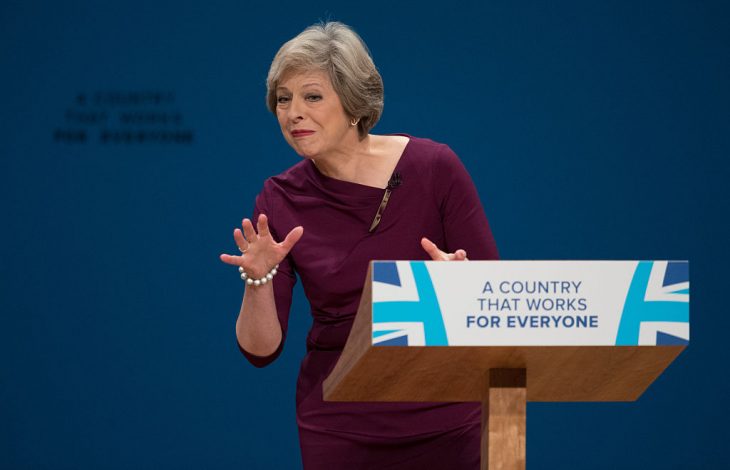After two days of testing Commons debates, Theresa May’s Brexit timetable remains on track. Yesterday’s ‘concession’ – or non-concession, depending on how you look at it – by ministers did enough to limit the extent of the Tory rebellion (only seven Conservative MPs went against the Government, despite earlier reports that as many as 20 backbenchers were considering doing so). This meant the Government’s Article 50 bill emerged unscathed. Of course all that could change this afternoon.
Today’s debate will be the last opportunity for MPs hoping to tinker with the bill which will kick start Brexit. In the spirit of this week’s mammoth sessions, it’ll be another long debate, starting at 1.30pm, with a final vote expected at around 8.30pm. Even after today, peers will still get the opportunity to try and insert clauses here and there into the Article 50 bill. Yet it’s almost certain that any such attempt will be knocked down by MPs when it’s batted back to the Commons. So this afternoon’s debate is the final real hurdle for the Government to overcome.
The biggest test will, undoubtedly, be on the controversial issue of the status of EU nationals after Brexit. Many have called for the PM to guarantee their rights to stay put in Britain. Theresa May, though, has been reluctant to relinquish something of a bargaining chip in negotiations. It’s true that the PM has done her best to placate Tory MPs angry about this approach. She told the Commons this week that: ‘EU citizens living in the UK make a vital contribution to our society and economy’. The Home Secretary, too, has also made an intervention: writing a letter confirming EU nationals living in the UK would not be affected. Whether this is enough to convince wavering Tories to stay on board the Brexit train remains to be seen.
Before the Prime Minister – and Tory whips – start patting themselves on the back and hailing a good week, there are other amendments to brush aside. Another amendment, backed by a number of Labour MPs, calls on the Government to seek a transitional deal with the EU after the end of the two year period allowed for under the terms of Article 50. Given that the Government said yesterday it would offer MPs a vote on any deal – with the option, if they reject it of walking away with no deal – ministers have a clear reason for not wanting to find their hands tied by the inclusion of this clause.
Leaving the EU also means leaving behind a host of other acronyms – Europol, Eurojust, EMSA (European Maritime Safety Agency) – to name a few. Some MPs are not happy about the idea of this, and are trying to use today’s debate to get the Government to guarantee this won’t happen. Unsurprisingly, the SNP are also doing their bit to make some noise this afternoon: Alex Salmond and other SNP MPs have put their names to a clause demanding that Scotland get a ‘differentiated settlement’. This is unlikely to happen, but yet again this shows the willingness of the SNP to use Brexit as a means of trying to make life difficult for the Government at each and every opportunity.
Elsewhere, there are also amendments calling for the white paper to spell out the objective that Britain should stay put in the single market (despite the PM making it clear Britain is on its way out). MPs are also trying to defy Theresa May’s Brexit plan in other ways. Another amendment is calling for the PM to push back her self-imposed Article 50 deadline of the end of March until November 1st. This would, the supporters claim, allow the dust to have settled from the various European elections taking across the continent.
Yet amendments like these – as well as other, unlikely ones, including one calling for the Government to try and continue to have its say on EU trade rules even after Brexit (something the EU is never going to agree to do) will be the proof Brexit-backing MPs need to show that some of their colleagues are determined to try and prevaricate by any means. By 8.30pm, they’ll be hoping they can breathe a sigh of relief that the Article 50 bill has passed safely through the Commons in its original form.







Comments